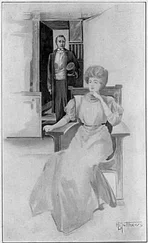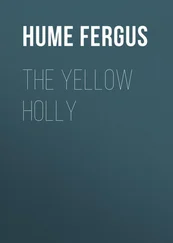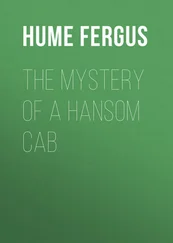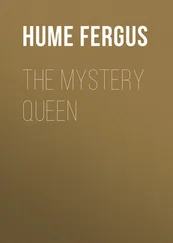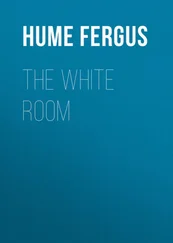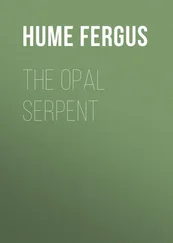Fergus Hume - The Third. Volume
Здесь есть возможность читать онлайн «Fergus Hume - The Third. Volume» — ознакомительный отрывок электронной книги совершенно бесплатно, а после прочтения отрывка купить полную версию. В некоторых случаях можно слушать аудио, скачать через торрент в формате fb2 и присутствует краткое содержание. Жанр: foreign_prose, на английском языке. Описание произведения, (предисловие) а так же отзывы посетителей доступны на портале библиотеки ЛибКат.
- Название:The Third. Volume
- Автор:
- Жанр:
- Год:неизвестен
- ISBN:нет данных
- Рейтинг книги:3 / 5. Голосов: 1
-
Избранное:Добавить в избранное
- Отзывы:
-
Ваша оценка:
- 60
- 1
- 2
- 3
- 4
- 5
The Third. Volume: краткое содержание, описание и аннотация
Предлагаем к чтению аннотацию, описание, краткое содержание или предисловие (зависит от того, что написал сам автор книги «The Third. Volume»). Если вы не нашли необходимую информацию о книге — напишите в комментариях, мы постараемся отыскать её.
The Third. Volume — читать онлайн ознакомительный отрывок
Ниже представлен текст книги, разбитый по страницам. Система сохранения места последней прочитанной страницы, позволяет с удобством читать онлайн бесплатно книгу «The Third. Volume», без необходимости каждый раз заново искать на чём Вы остановились. Поставьте закладку, и сможете в любой момент перейти на страницу, на которой закончили чтение.
Интервал:
Закладка:
The trial, which took place at Canterbury, was a nine days' wonder, and opinions were divided as to the guilt of the erring wife. One party held that she had committed the crime in the manner stated by the police, while the others asserted that Jeringham was the criminal, and had disappeared in order to escape the consequences of his guilt. "Doubtless," said they, "he had been met by Larcher after leaving the house, and had killed him during a quarrel." The use of the dagger was accounted for by these wiseacres by a belief that Mrs. Larcher had given it to Jeringham as a love token when she parted from him at the door of The Laurels.
The evidence of Denis, that he had been with or near Mrs. Larcher till she retired to bed, and that the captain had not set foot in the house on that evening, turned the tide of evidence in favor of the unfortunate woman. She was acquitted of the crime, and went to London, but there died – as appeared from the newspapers – a few weeks afterward, killed by anxiety and shame.
The child Claude was taken charge of by Mr. Hilliston, who had been a good friend to Mrs. Larcher during her troubles, and so the matter faded from the public mind.
What became of Jeringham no one ever knew. His victim – as some supposed Larcher to be – was duly buried in the Horriston Cemetery, but all the efforts of the police failed to find the man who was morally, if not legally, guilty of the crime. Denis also was lost in the London crowd, and all those who had been present at the tragedy at The Laurels were scattered far and wide. New matters attracted the attention of the fickle public, and the Larcher affair was forgotten in due course.
The mystery was never solved. Who was guilty of the crime? That question was never answered. Some accused Mrs. Larcher despite her acquittal and death. Others insisted that Jeringham was the criminal; but no one could be certain of the truth. Hilliston, seeing that Mr. and Mrs. Larcher were dead, that Mona, Denis, and Jeringham had disappeared, wisely kept the matter secret from Claude, deeming that it would be folly to disturb the mind of the lad with an insoluble riddle of so terrible a nature. So for five-and-twenty years the matter had remained in abeyance. Now it seemed as though it were about to be reopened by Mrs. Bezel.
"And who – " asked Claude of himself, as he finished this history in the gray dawn of the morning, "who is Mrs. Bezel?"
To say the least, he had a right to ask himself this question, for it was curious that the name of Mrs. Bezel was not even mentioned in connection with that undiscovered crime of five-and-twenty years before.
CHAPTER V
A STRANGE COINCIDENCE
In spite of Tait's methodical habits, circumstances beyond his control often occurred to upset them. On the previous day the unexpected arrival of Claude had altered his plans for the day, and after his return from the theater on the same evening, he had – contrary to his rule – passed the night in reading. The invaluable Dormer had procured "A Whim of Fate" from Mudie's, and Tait found it lying on the table in company with biscuits and wine. Excited by the performance, he did not feel inclined to retire at his usual hour of midnight, and while sipping his wine, picked up the first volume to while away the time till he should feel sleepy.
Alas! this novel, about which everyone in London was talking, proved anything but soporific, and for the whole of that night Tait sat in his comfortable chair devouring the three volumes. The tale was one of mystery, and until he learned the solution Tait, conventional and incurious as he was, could not tear himself from the fascination of the printed page. When the riddle was read, when the criminal was hunted down, when the bad were punished, and the good rewarded, the dawn was already breaking in the east. In his Jermyn Street hotel, Claude Larcher was rising, stiff and tired, from the perusal of a tragedy in real life; in his Earls Street chambers, Spenser Tait was closing the third volume of John Parver's work. Each had passed a wakeful night, each had been fascinated by the account of a crime, the one real, the other fictional. So does Fate, whose designs no one can presume to explain, duplicate our lives for the gaining of her own ends.
Rather disgusted by his departure from the conventional, and heartily blaming the too ingenious John Parver for having caused such departure, Tait tumbled hastily into bed, in order to snatch a few hours' sleep. Dormer, ignorant of his master's vigil, woke him remorselessly at his usual hour, with the unexpected intelligence that Mr. Larcher was waiting to see him in the sitting room. From the telegram of the previous night, and this early visit, Tait rightly concluded that his friend was in trouble, so without waiting to take his bath, he hurriedly slipped on a dressing gown, and appeared sleepy and disheveled in the sitting room. Larcher, who looked likewise dissipated, arose to his feet as the little man entered, and they eyed one another in astonishment, for the appearance of each was totally at variance with his usual looks.
"Well," said Tait interrogatively, "I see you've been making a night of it."
"I might say the same of you," replied Larcher grimly; "a more dissipated looking wretch I never saw. Have you fallen into bad habits at your age?"
"That depends on what you call bad habits, Claude. I have not been round the town, if that is what you mean. But, seduced by the novel of a too ingenious author, I have sat up all night devouring his three volumes. Such a thing has not occurred with me since I unfortunately tried to read myself to sleep with 'Jane Eyre.' Charlotte Brontë and John Parver are both answerable for my white nights. But you," continued Tait, surveying his friend in a quizzical manner; "am I to understand that – "
"You are to understand that my night has been a duplicate of your own," interrupted Larcher curtly.
"What! Have you been reading 'A Whim of Fate'?"
"No, my friend, I have not. While you were devouring fiction, I have been making myself acquainted with a tragedy in real life."
Larcher thereupon savagely threw on the breakfast table a roll of papers, and looked defiantly at his friend. Tone and expression failed to elicit surprise.
"Oh!" said Tait reflectively, "then Hilliston gave you bad news, after all. I guessed he had from your refusal to accompany me to the theater last night."
"You guessed rightly. He gave me such news as I never expected to hear. You will find it amply set forth in those papers, which I have been reading all night."
"Dear me. I trust it is nothing serious. Has Mrs. Bezel – "
"I don't know anything about Mrs. Bezel," said Larcher loudly. "So far as she is concerned I am as much in the dark as ever. But my parents – "
"What of them?" interrupted Tait, uttering the first thought which came into his mind. "Are they alive, after all?"
"No. They are dead, sure enough," muttered Claude gloomily.
"In that case what can Mr. Hilliston or Mrs. Bezel have to say about them," demanded the other, looking puzzled. "No scandal about Queen Elizabeth, I hope?"
"Confound it, man, don't be so flippant! I've had bad news, I tell you. My father," – here Larcher gulped down his emotion with some difficulty – "my father was murdered!"
"Murdered!" repeated Tait, looking aghast, as well he might.
"Yes! And my mother was accused of having murdered him. There you have it."
It was some little time before Tait could face the skeleton so unexpectedly produced from the Larcher cupboard. Hitherto his acquaintance with crime had been mainly derived from fiction after the style of John Parver, or from the columns of the press; but now he was brought face to face with a tragedy indirectly connected with his dearest friend, and naturally enough did not like the situation. Nevertheless, like the wise little man he was, he made no comment on the truth so suddenly blurted out, but pushed his friend into a comfortable chair, and proposed breakfast.
Читать дальшеИнтервал:
Закладка:
Похожие книги на «The Third. Volume»
Представляем Вашему вниманию похожие книги на «The Third. Volume» списком для выбора. Мы отобрали схожую по названию и смыслу литературу в надежде предоставить читателям больше вариантов отыскать новые, интересные, ещё непрочитанные произведения.
Обсуждение, отзывы о книге «The Third. Volume» и просто собственные мнения читателей. Оставьте ваши комментарии, напишите, что Вы думаете о произведении, его смысле или главных героях. Укажите что конкретно понравилось, а что нет, и почему Вы так считаете.

